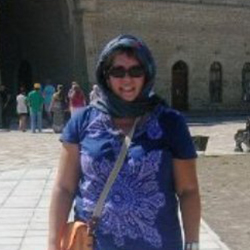
Political Science & International Affairs
College of Humanities & Social Sciences
Expertise in East-Central European politics, especially social movements including the history of dissent and the fall of communism in Poland, Czechoslovakia, East Germany and Hungary. Published the book, "Creating a Democratic Civil Society in Eastern Germany: The Case of the Citizen Movements and Alliance '90'" (Palgrave, 2001), and several articles, book reviews and conference papers related to civil society, democracy and democratic opposition movements in Eastern Germany. Received an $88,000 grant to lead a National Endowment for the Humanities summer seminar for K-12 teachers on the "History and Philosophy of the Peaceful Revolution in East-Central Europe" (June-July 2009). Received a German Academic Exchange Research Grant from the German government for seven weeks of research on voluntary associations and democracy in Eastern Germany (June-July 2008).
Explaining the reasons for the fall of communism in Eastern Europe, including the role of Gorbachev, economic problems, lack of legitimacy among the population, and the role of democratic opposition groups.
Explaining the reasons for the fall of communism in Eastern Europe, including the role of Gorbachev, economic problems, lack of legitimacy among the population, and the role of democratic opposition groups.
The history (and philosophy) of the Solidarity movement in Poland and other groups and individuals who had fought since the 1960s to reform or completely overthrow the communist regimes.
The history of the 1953 workers’ revolt in East Germany, of the 1956 Hungarian Revolution, and of the 1968 ’Prague Spring,’ all of which were crushed by Soviet military intervention.
Reasons for the relatively small number of women actively involved in American politics, especially when compared with women’s political roles in other advanced western democracies.